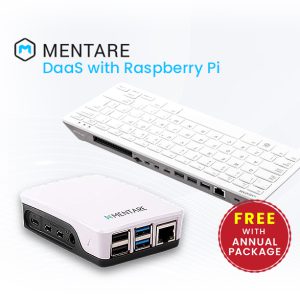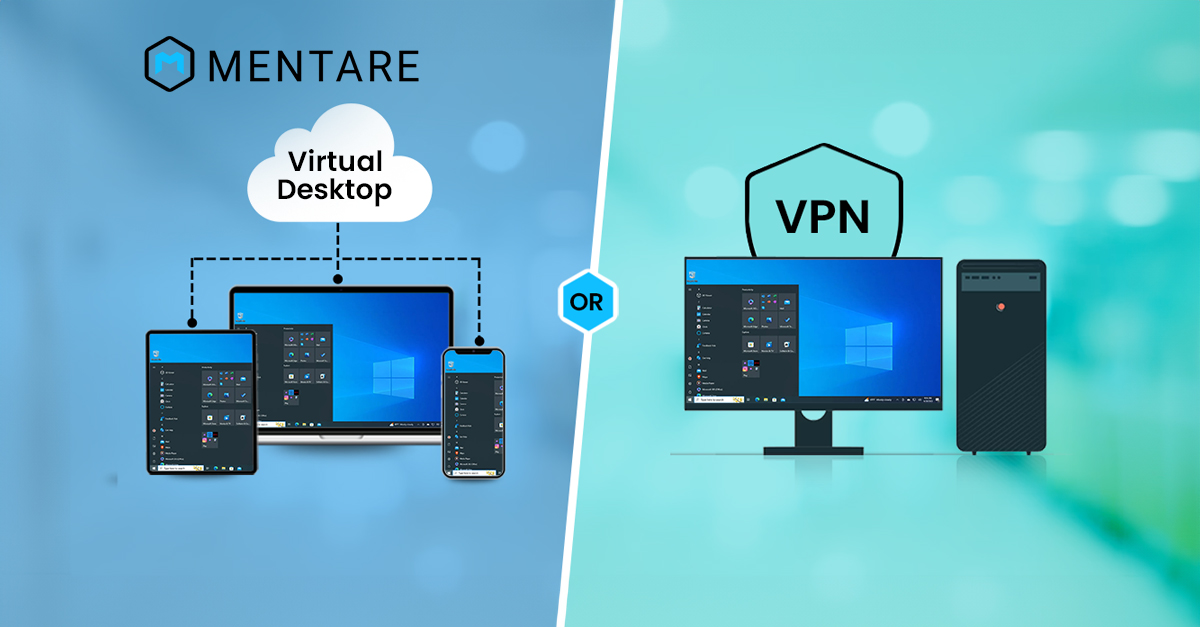Virtual Desktop
Virtual Desktop or VPN: Which Is the Best Solution for Remote Work?
The COVID-19 pandemic has catapulted the widespread adoption of remote work to unprecedented heights; businesses grappling with this new reality confront a formidable challenge: guaranteeing their distributed workforce secure and reliable access to corporate resources.
Understanding Virtual desktop and VPN
1. Virtual Desktop Infrastructure (VDI)
Users access a virtualized desktop environment hosted on a remote server through the technology known as VDI. Instead of locally running applications and storing data on their devices, they secure a connection over the internet to reach their desktops, data, and applications. Desktop management adopts a centralized approach with VDI that streamlines software updates deployment by IT administrators; it also simplifies maintenance of security patches and other configurations.
2. Virtual Private Network (VPN)
A secure tunnel encrypted internet traffic between a user’s device and a remote server; this is what we call a VPN. Users gain access to corporate resources – files, applications, intranet websites – by connecting to this VPN server as though they were physically within the organization’s network layout. Over untrusted networks like public Wi-Fi hotspots, VPNs offer an essential security measure for remote employees accessing sensitive information.
Advantages and Disadvantages of Virtual Desktop
Advantages
VDI: Centralized Management empowers IT administrators to manage desktops, applications, and data centrally; this reduces the overhead typically linked with individual device management.
Maintaining data within the data center enhances security: VDI mitigates risks of data loss or theft from lost/stolen devices. Furthermore, by enforcing strict access controls and encryption protocols, VDI safeguards sensitive information.
VDI: An ideal solution for organizations with dynamic workforce needs, it offers easy scalability to accommodate growing or fluctuating user demands–a graduate-level concept that underscores its effectiveness.
Disadvantages
Implementing and maintaining VDI can incur significant costs, necessitating investments in server infrastructure, licensing fees, and continuous operational expenses.
Deploying and managing a VDI infrastructure necessitates specialized knowledge and expertise; consequently, organizations with limited IT resources may find this task challenging—primarily due to its complexity.
The performance of VDI may vary, potentially leading to latency issues or a degraded user experience; this variability is dependent upon network conditions and server capacity.
Advantages and Disadvantages of VPN
Advantages
VPNs: These virtual private networks grant remote employees the ability to tap into corporate resources from any location possessing an internet connection. Consequently, this accessibility fosters heightened flexibility and productivity.
Deployment Ease: The deployment and configuration of VPNs require a minimal setup on both the client and server sides.
In terms of cost-effectiveness, VPNs often outperform VDI; they demand fewer initial investments–both in infrastructure and licensing.
Disadvantages
While VPNs encrypt internet traffic, they remain susceptible to security threats like man-in-the-middle attacks or malware infections, a paradox of their protective capabilities and potential vulnerabilities.
VPNs allow access to corporate resources, yet they restrict the control over the devices that access these particular assets. If one doesn’t adequately secure or manage remote devices, this limited control could potentially present security risks.
The performance of a VPN may deteriorate over time, particularly during periods of high usage or when connecting from areas with subpar internet connectivity.
Choosing the Right Solution for Your Organization
In the decision-making process for choosing between VDI and VPN in facilitating remote work, a universal solution does not exist. Instead, organizations must meticulously evaluate their distinct requirements, budget limitations, and security apprehensions before arriving at an informed choice.
Considerations for Choosing VDI
Data security being a paramount concern for your organization, you may prefer the centralized approach and enhanced security features of Virtual Desktop Infrastructure (VDI) due to its superior data management capabilities.
Scalability and flexibility may render VDI the perfect choice for your organization’s future needs, particularly if you anticipate substantial growth or expect fluctuating user demands.
If your organization possesses the essential resources and expertise to deploy and maintain a Virtual Desktop Infrastructure (VDI) infrastructure, it can offer an exceptional solution for remote work: Resource Availability.
Considerations for Choosing VPN
If you prioritize budget constraints, Virtual Private Networks (VPNs) present a cost-effective solution: they provide remote access to corporate resources–eliminating the need for substantial upfront investments; indeed, this is their primary advantage.
If your organization prioritizes flexibility and ease of deployment, Virtual Private Networks (VPNs) offer an uncomplicated, convenient solution: they enable remote employees to seamlessly connect with the corporate network from any location.
If your organization prioritizes performance, and its remote employees demand flawless access to corporate resources, in certain scenarios – VPNs might outperform VDI.
Introducing Mentare: Enhancing Security in Remote Work Environments
As remote work rapidly evolves, cybersecurity achieves paramount importance: organizations aspire to find comprehensive solutions for protecting their sensitive data and networks. In this endeavor–to safeguard against cyber threats–Mentare surfaces as a trusted partner; it leverages both cutting-edge technology and an ensemble of seasoned experts. With these resources at its disposal, Mentare extends a suite of enterprise-grade security solutions designed specifically with the unique challenges inherent in remote work environments in mind, thus ensuring utmost protection against potential breaches or attacks.
Why Mentare Works
With years of experience in the cybersecurity industry, Mentare’s team of experts possess an inherent understanding of the latest trends, threats, and best practices; they specialize in areas ranging from threat intelligence analysis to security architecture design. Their wealth—both broad and deep—of knowledge equips them with superior skills: ones that enable tailored solutions for each client–solutions specifically addressing their unique needs.
Innovation: Committed to proactively addressing emerging cyber threats, Mentare remains at the forefront of cutting-edge advancements; it continuously evolves and innovates its solutions. By harnessing the power of artificial intelligence and machine learning–the latest technological breakthroughs through ongoing research and development efforts–Mentare delivers effective security measures for remote work environments in a proactive manner.
Recognizing the unique security requirements of every organization, Mentare customizes its approach to solution design and implementation. It works closely with clients – deploying a virtual private network (VPN), implementing a virtual desktop infrastructure (VDI), or integrating advanced threat detection mechanisms – in developing tailored solutions that align precisely with their business objectives and security priorities.
In today’s digital age, downtime remains non-negotiable; Mentare–recognizing this criticality of reliability and uptime–constructs its solutions with an unwavering focus on resilience and redundancy. Through the strategic utilization of robust infrastructure along with resilient architectures, Mentare guarantees secure, seamless access to critical resources for its clients and a service unimpeded by external disruptions or cyber-attacks.
Beyond the initial implementation phase, Mentare actively provides ongoing support and maintenance; this commitment ensures the sustained effectiveness of its solutions. Tasked with troubleshooting technical issues, conducting security audits – or even providing user training: Mentare passionately supports its clients throughout these processes. This dedication empowers them to navigate–with confidence–the complexities inherent in remote work.
Conclusion
Amidst the perpetually shifting terrain of remote work, security takes precedence: organizations are relentlessly endeavoring to shield their sensitive data and networks from cyber threats. In this context, Mentare emerges as an esteemed ally; it provides tailor-made enterprise-grade security solutions for unique remote-work environment needs.
Mentare commits to providing the necessary solutions and support for ensuring the security and success of remote work initiatives: this includes implementing a virtual desktop infrastructure, deploying a virtual private network, or integrating advanced threat detection mechanisms.







